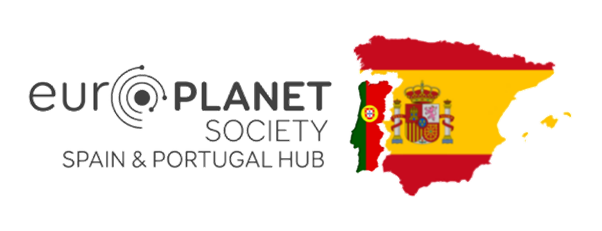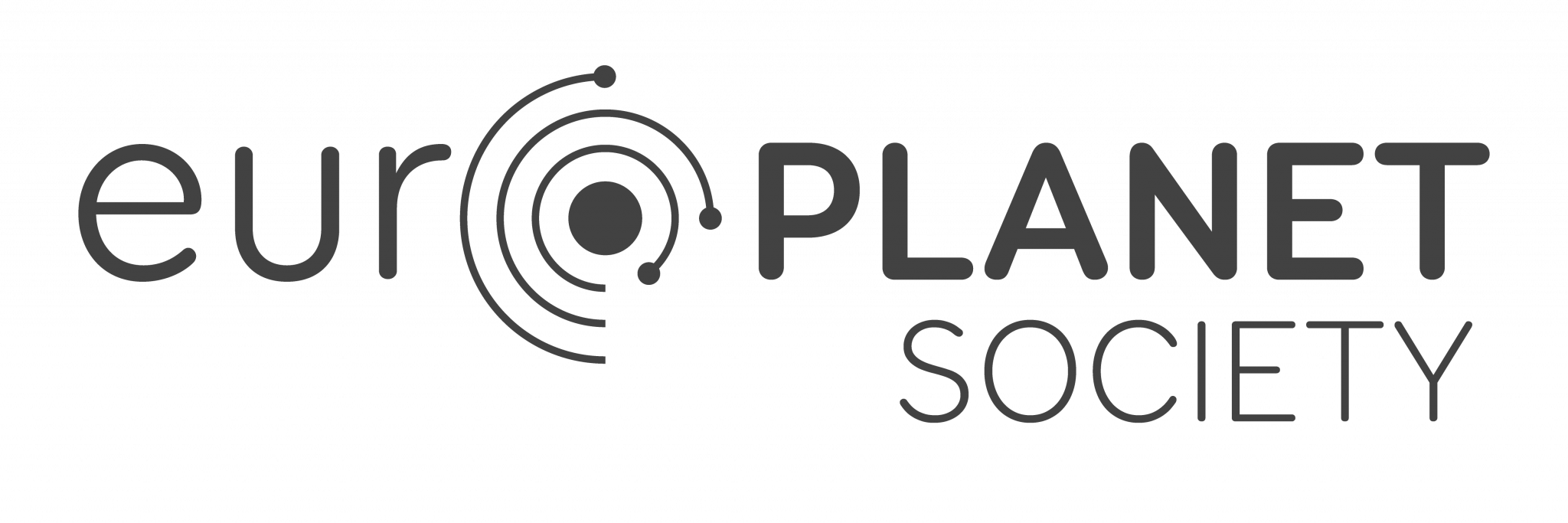
One of the most significant events of the Europlanet Society is its Annual Congress (EPSC), which usually gathers over 1,000 participants in each edition. This year, 2020, the venue should have been Granada, at the end of September. But the exceptional circumstances caused by Covid-19 have determined that the development of EPSC2020 will be carried out under the virtual modality format. EPSC2020 is the first time EPSC has been held as a virtual meeting. We believe that virtual meetings are likely to play an increasingly important role in supporting our community, broadening the participation of underrepresented groups, and addressing the global challenge of climate change. EPSC2020 is an opportunity for us to be creative in developing innovative and complementary ways for our community to interact.
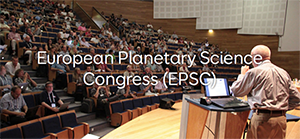 The programmatic content of the EPSC will be developed based on two types of events: sessions in real time, "live", distributed in short blocks (maximum of 2 hours) in the morning and afternoon, and video presentations with pre-recorded audiovisual narration. The first ones will take place during the week of September 28 to October 2, (dates initially planned for the congress in its face-to-face format), while the pre-recorded presentations and poster sessions will run from September 21 to October 9.
The programmatic content of the EPSC will be developed based on two types of events: sessions in real time, "live", distributed in short blocks (maximum of 2 hours) in the morning and afternoon, and video presentations with pre-recorded audiovisual narration. The first ones will take place during the week of September 28 to October 2, (dates initially planned for the congress in its face-to-face format), while the pre-recorded presentations and poster sessions will run from September 21 to October 9.
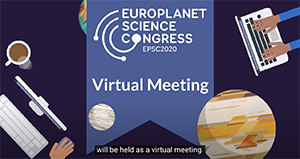 EPSC meetings span the entire planetary science domain and are distinctively interactive in style, with a wide mix of talks, workshops, and posters, intended to provide a stimulating environment for the community to come together.
EPSC meetings span the entire planetary science domain and are distinctively interactive in style, with a wide mix of talks, workshops, and posters, intended to provide a stimulating environment for the community to come together.
For the first time, the Europlanet Science Congress (EPSC) 2020 opens its doors to schools and will give students an insight into how contemporary science is done. Teachers and students are invited to join us virtually with their classroom or educational institute (suggested age range 12-18 years or older).
The Diversity Committee of the Europlanet Society, in collaboration with Women in Red and WikiDonne, is organizing an Edit-a-thon during EPSC2020 to highlight diversity within the planetary scientific community.
The 2020 Europlanet Society Congress (# EPSC2020) is inviting schools and space enthusiasts of all ages to get creative and share their otherworldly inspired artwork and performances in a contest called #InspiredByOtherWorlds.
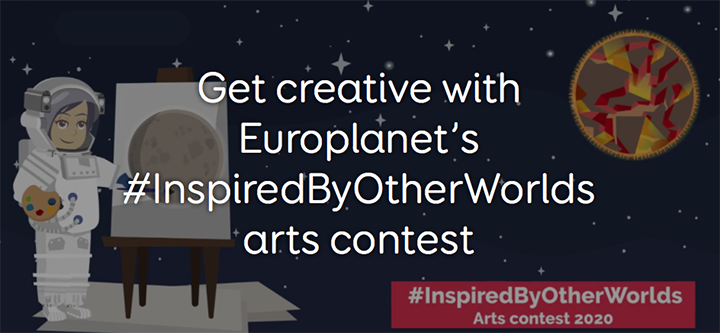
The Europlanet Society Conference (EPSC) has a long tradition of bringing amateur and professional astronomers together with sessions dedicated to amateur astronomy and Pro-Am collaborations. This year the opportunity to have both communities together in the same city is lost, (Granada would have been the case and it will return to it in person in 2022), discussing exciting observations and sharing personal experiences. However, the meeting organizers, along with amateur astronomers deeply involved in the last EPSC meeting, have worked to have the most comprehensive amateur astronomy program ever produced at this meeting.
A list of events is presented here with the invitation to join them to all those interested in planetary sciences from the amateur group. Splinter sessions do not require prior registration and will be organized primarily through the Zoom platform. The keynotes will be available, also open, as lectures on Vímeo after the conference.
To highlight topics such as exoplanets, the Europlanet Telescope Network or the keynote address by Marc Delcroix, which will cover the wide spectrum of Pro-Am collaborations in solar system astronomy.
Events index:
1.- SMW2: Amateur astronomers' ground support for the Juno mission - (This event does not require prior registration)
The Juno mission has been orbiting Jupiter since 2016. Its JunoCam instrument provides the highest resolution images ever obtained of the planet. To understand the temporal and spatial context of these images and the details of Jovian meteorology, Juno relies on global ground support from professional and amateur astronomers. This collaboration has been essential to the interpretation of these outstanding data. Hobbyist astronomers provide images that are used to plan JunoCam high-resolution observations, and citizen scientists process many of the astonishing high-resolution JunoCam images that contribute to mission success. The session will contain talks, questions, and a small panel discussion at the end and is open to Juno scientists, amateur astronomers, and citizen scientists collaborating with the Juno mission. The session will be recorded and available online after the conference.
Session program:
- Jupiter image processing. Christopher Go
- Recent weather events on Jupiter. John H. Rogers (BAA)
- The Juno mission. Glenn S. Orton (JPL)
- JunoCam in Juno. Candice Hansen (PSI)
- Junocam image processing. Kevin M. Gill
- The long-term value of Jupiter data. Arrate Antunano (University of Leicester)
Time: 21 sep 2020 - 18:00 (CEST) | Estimated duration: 1h45 min.
To join the Zoom meeting:
https://us02web.zoom.us/j/84924336526?pwd=TDFCK0h3UnJlTStva24xZWZ1K2IrZz09
Meeting ID: 849 2433 6526
Access code: 915045
2.- ODAA3: Professional-hobbyist collaborations on small bodies, terrestrial and giant planets, exoplanets, and ground support for space missions.
Brief summary of talks and abstracts on amateur astronomy presentations (16) sent to the conference. This event is part of the meeting and requires to be a registered participant in the meeting. The talks and posters pertaining to this session will be available to registered participants on the meeting website.
Time: 24 sep 2020 - 11:20-11:40 (CEST)
3.- Keynote Lecture: The Growing Reach of Amateur and Professional Collaborations in Planetary Sciences - Marc Delcroix
This will be a live presentation as part of the EPSC plenary program with questions and answers at the end of the talk.
This keynote will be recorded and publicly available on the EPSC Vimeo channel after the meeting.
Time: 29 sep 2020 - 17:00-17:20 (CEST)
4.- SMW4: The Europlanet Telescope Network.
This event does not require registration. https://meetingorganizer.copernicus.org/EPSC2020/session/38665
As part of the recently launched Europlanet 2024 research infrastructure, a new collaboration has been initiated between telescopes around the world to provide coordinated observations and rapid responses in support of space missions and in tracking new events. The so-called Europlanet Telescopio Network will thus provide professional scientists and amateur astronomers access to an initial set of 16 telescope installations. Scientists and hobbyists can now apply to visit these facilities. The Europlanet Telescope Network also plans to support the integration of amateur astronomers in planetary sciences, as their observations can be of crucial importance for various scientific areas.
The session will provide an overview of the network, the telescope facilities involved, and discuss support for amateur astronomers in Europe and beyond. The meeting is open to everyone interested in the Europlanet Telescope Network.
Time: 30 sep 2020 - 14:00-16:00 (CEST)
5.- SMW12: The Ariel mission for exoplanets and the support of amateurs.
This event does not require registration. https://meetingorganizer.copernicus.org/EPSC2020/session/38673
So far more than 4,000 exoplanets have been discovered, and this number continues to grow rapidly! However, we know very little about them: what are they made of? What are the conditions there? How were they formed and how did they evolve? ESA's M4 mission Ariel will spectroscopically observe around 1,000 exoplanets to further characterize their atmospheres and try to answer these questions.
Exoplanets are one of the few fields in which amateur astronomers and the public can contribute significantly, with observations with small and medium-scale telescopes. In the case of Ariel, small and medium-sized telescopes are valuable for planning observations in the most efficient way possible. To achieve this, a good knowledge of the ephemeris of the planets is needed prior to the launch of Ariel in 2028. While the ephemeris of some planets are being refined on a case-by-case basis, an organized effort to collectively verify or update them when necessary does not exist.
This session will present the Ariel mission and the ExoClock project, an open, integrated and interactive platform for the purpose of producing a confirmed list of ephemeris for the planets that will be observed by Ariel. The project has been developed in such a way as to take full advantage of all available resources: observations reported in the literature, observations from space instruments and, mainly, observations from ground-based telescopes, including professional and amateur observatories. To facilitate inexperienced observers and at the same time achieve homogeneity in the results, we created data collection and validation protocols, educational material and user-friendly interfaces, open to all. ExoClock launched in September 2019 and now has more than 160 participants, mostly amateur astronomers, who have already observed 1,200 transits for 170 exoplanets.
The session will begin with Giovanna Tinetti from UCL, the Ariel Mission Principal Investigator, who will introduce the mission concept and goals and will continue with Athanasia Nikolaou from Sapienza, who will present Ariel's perspectives for small planets. Following this, Anastasia Kokori from UCL, ExoClock Project Coordinator, will share the scope and principles of Project ExoClock, while Martin Crow, an active ExoClock observer from the British Astronomical Association, will share his experience observing exoplanets and participating in ExoClock. . Finally, Angelos Tsiaras from UCL, coordinator of the ExoClock project, will demonstrate how to analyze observations of exoplanets with the specific and easy-to-use tools developed for the project.
The ExoClock project website: www.exoclock.space
Educational material can be found at: www.exoworldsspies.com
Time: 28 sep 2020 - 18:00-20:00 (CEST)



